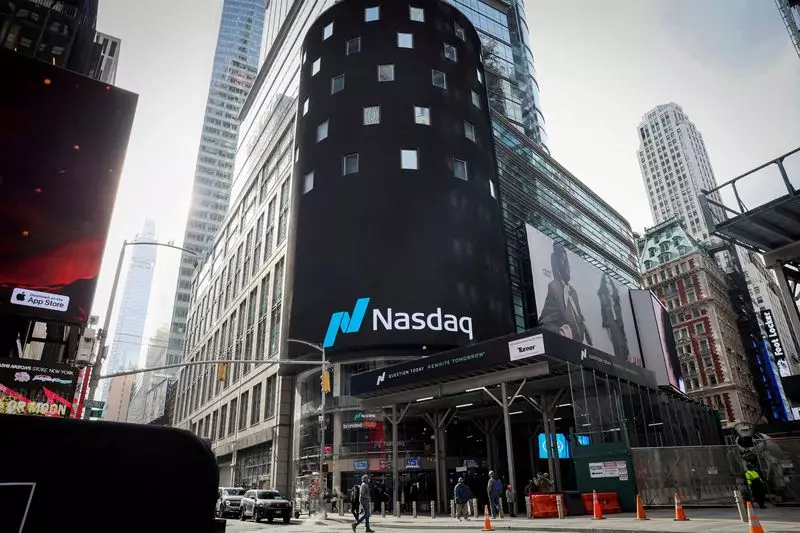U.S. stock index futures experienced a noticeable decline on Friday following remarks made by Federal Reserve Chair Jerome Powell regarding interest rates. His assertion that the central bank does not feel an immediate urgency to lower rates sent ripples through the financial markets, leading to an uptick in bond yields and exerting pressure on equities sensitive to interest rate changes. In his speech, Powell emphasized ongoing economic growth, a resilient job market, and persistent inflation that has remained above the Fed’s target of 2%. These factors suggest a cautious approach as the central bank deliberates its future actions concerning interest rate reductions.
The response from investors was swift, with U.S. Treasury yields rising broadly in the wake of Powell’s comments. Wall Street’s key indexes finished lower, reflecting the market’s disappointment. Quincy Krosby, the chief global strategist for LPL Financial, articulated this sentiment succinctly, stating that Powell delivered an unwelcome message that markets had been reluctant to accept. His comments underscored that the Federal Reserve cannot yet claim victory in its ongoing struggle to manage inflation. This situation has compelled traders to reassess their expectations regarding the central bank’s impending decisions, notably increasing the likelihood that rates will remain unchanged during the Fed’s December meeting.
Traders Recalibrate Their Expectations
Market expectations for the Fed’s future actions have noticeably shifted. The CME FedWatch tool indicates that traders now anticipate a 37.6% probability of the Fed maintaining current rates come December, a significant increase from the 14% probability just a month ago. Furthermore, projections for total rate easing have been revised downward, with expectations now hovering at around 73 basis points by the end of 2025, as per calculations from LSEG. This reassessment reflects heightened concerns about the economic environment and the inflationary pressures that could influence the Fed’s course of action.
As the week draws to a close, all three major U.S. stock indexes are poised for losses, driven by a retreat from the sharp rally seen following the elections. Investors who initially rallied in anticipation of market-friendly policies are now grappling with the complexities of inflation and its implications under a potential second Donald Trump presidency. Moreover, stocks of companies involved in vaccine development faced sell-offs after the announcement of Robert F. Kennedy Jr. as the head of the Department of Health and Human Services. His controversial stance on vaccines has spurred uncertainties affecting the stock prices of firms like BioNTech, Moderna, Novavax, and Pfizer.
As of 5:30 a.m. ET, the numbers on the futures market reflected widespread sentiment: the Dow E-minis were down by 205 points (0.47%), S&P 500 E-minis decreased by 38.5 points (0.64%), and Nasdaq 100 E-minis saw a drop of 185.5 points (0.88%). The smaller-cap Russell 2000 index also fell by 0.3%, reinforcing the trend of risk-off sentiment dominating the market. The performance of megacaps was similarly disappointing, with notable declines from tech giants such as Nvidia, Apple, and Alphabet.
Anticipating Future Economic Indicators
Amid this turbulent market backdrop, traders are now looking toward upcoming data releases, such as October retail sales figures set to be disclosed later in the morning. These metrics will provide essential insights into consumer behavior amid rising prices and contribute to the overall narrative regarding economic health. Additionally, import and export prices as well as industrial production data will further elucidate the economic landscape. Insights gleaned from remarks by New York Fed President John Williams will also be closely monitored as investors seek signs of how the central bank may react to evolving economic conditions.
Jerome Powell’s recent comments have reignited serious discussions about interest rates and inflation among investors. The market’s reaction signifies cautious optimism as traders navigate an uncertain economic future, balancing the complexities of fiscal policy, consumer behavior, and inflationary trends.

